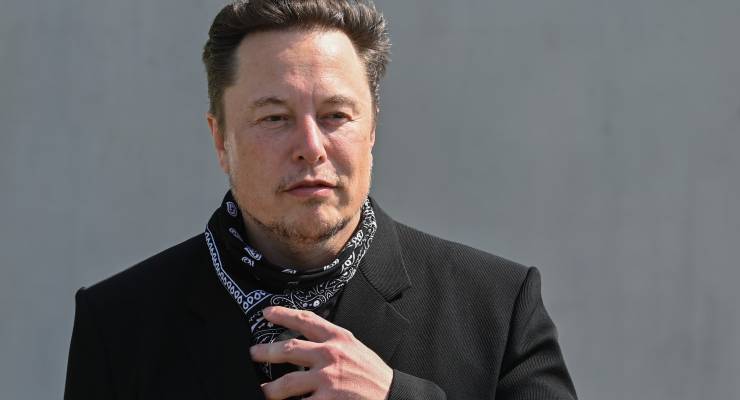
Twitter is soon to be no more. No, it hasn’t collapsed, although each day the platform feels increasingly rickety. Instead, the social media platform is being reborn under a new name: X.
Why shed its famous bird visage? The rebranding is the latest edict of Elon Musk, who has a long relationship with the letter. It’s the name of the online bank he co-founded in the 1990s that, after a merger, became PayPal (earning Musk his first $100 million). It’s part of SpaceX. It’s the name of one of his Tesla models. Musk even renamed Twitter’s parent company to X Corp.
The move is a signal that Musk continues to push the company towards his dream of transforming Twitter into “X, the everything app”. This is a plan to replicate China’s WeChat, an app that combines messaging with, among other features, payment services. You can do everything from chatting with your friends to paying your rent in WeChat. It’s ubiquitous and very profitable, everything that Twitter is not.
Twitter’s new CEO Linda Yaccarino used the moment to take the promise further: “X is the future state of unlimited interactivity — centred in audio, video, messaging, payments/banking — creating a global marketplace for ideas, goods, services and opportunities. Powered by AI, X will connect us all in ways we’re just beginning to imagine,” she wrote.
These futuristic pitches paint a bright future for the app that its leaders hope will blind people to the current state of things. Twitter has been in terminal decline since Musk took over. Now a fellow tech billionaire, Mark Zuckerberg, has launched a competitor, Threads, which had more than 100 million sign-ups in less than a week (although not all these new users have stuck around). Just last week, Musk admitted the company is losing money because of a 50% drop in revenue and debt — both problems of his own creation.
It’s one thing to promise that his everything app could “become half of the global financial system”. It’s another to make this pledge while mismanaging a previously moderately successful app.
During Musk’s 10 months of ownership, drastic staff layoffs make it unlikely the company has the technical capability to add significant new features as planned. Plus who’s going to trust it even if it does? It’s hard to imagine many reasonable people are going to look at the erratic way Musk has managed the platform — remember the inexplicable changing of Twitter’s logo to the Dogecoin logo? — and decide to let the platform manage their finances.
Musk’s everything-app pitch is at best another example of his predilection towards moonshot “predictions” that feed the mythos of him as a futuristic inventor. At worst, it’s a cynical ploy to distract from the reality that Twitter has gone backwards under his reign. Realistically, it’s probably both.
This will be the last time that I write about “Twitter” if Musk is to be believed. But his track record suggests it’s unwise to believe this will be the case.








Perhaps the narcissistic Musk should merge Twitter with his SpaceX, to create MySpaceX. What could possibly go wrong?
Not bad for a bloke whose intelligence includes
a rocket science hobby which
just happens to outdo Boeing and Northrop Grumman Corporation , and
just about all other rocket makers including China and Japan and Australia(!) ,
providing NASA a service that is not going to be bested ,
world best and leading ( only ) all electric cars , trucks , transport services ,
making more than 2 millions cars per year and expanding ,
solar tile ,
solar panel ,
government to industry to home electricity storage battery systems .
World coverage internet services with virtually handheld travelling satellite dish connectivity.
grow on and up chaps.
PayPal
https://neuralink.com/
This is what concerns me. What on earth made someone with such a stellar career in high technology go off on a tangent like Twitter with disastrous results? And with the Cybertruck nearing launch and the Roadster still years behind it’s a distraction Tesla doesn’t need, particularly a company so totally in the image of its creator.
Seems to me he’s going off the reservation the way Henry Ford did.
all of that is in your head space.
unresearched horse droppings.
Yaccarino:
To take a leaf from the Shina Ibu meme associated with Elon’s favoured Dogecoin: Much Vacuousness! So Buzzword! Very Bollocks!
Pretty sure you could finish your buzzword bingo card with just that one string of bilge quote from Yaccarino.
I’m wondering whether Elon’s lawyers are currently explaining to him the inadvisability of branding using a single letter that has been used for similar purposes for centuries. Trying to stop the rest of the world using the letter “X” should give him something to spend his last few billion on. Can’t wait for him to learn about all those radiologists copying his brilliant idea…
When’s that proposed cage fight between Musk and Zuckerberg happening? I’m hoping for a double fatality.
Who on earth is going to entrust their financial information to this company? I assume if someone steals your money and information and you complain, you will just get the ‘poop’ emoji and no assistance?